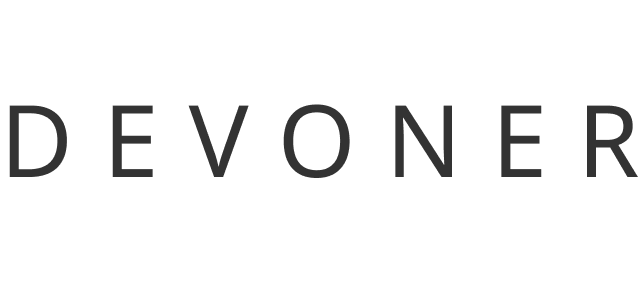The advertising industry is rapidly evolving with advancements in advertisement technology (AdTech). Companies increasingly embrace innovative AdTech solutions to revolutionize their marketing strategies and enhance customer engagement. From programmatic advertising to AI-powered targeting, AdTech trends offer practical ways for businesses to reach their target audiences.
Devoner, a leading technology consulting company, assists businesses in diving into advertisement tech. With invaluable guidance, we help navigate complexities and challenges, keeping businesses updated on the latest trends for success in the competitive advertising landscape. By staying ahead of trends and providing invaluable support, we ensure your successful and rewarding journey.
In this blog post, we will explore the top advertisement tech trends in 2024. With in-depth analysis, real-world examples, and actionable insights, we offer valuable guidance to assist businesses in thriving in the dynamic realm of advertising technology. We aim to empower you with the knowledge and resources necessary to remain competitive in today’s fast-paced market.
Afterward, you’ll uncover invaluable insights to excel in the dynamic realm of advertising technology trends. Stay ahead and harness these advancements to leverage innovative solutions and transformative opportunities that propel excellence in advertising and marketing strategies.
Let’s begin!
What is Advertisement Tech?
Advertisement tech encompasses tools and platforms for creating, distributing, and optimizing digital ads, including ad servers, DSPs, SSPs, and RTB systems. It enables precise audience targeting, campaign tracking, and automation, revolutionizing marketing efforts.
AdTech is closely related to marketing technology (MarTech), which involves tools and platforms for managing and optimizing marketing campaigns, customer interactions, and data analysis. As the digital advertising industry expands, AdTech becomes essential for advertisers, publishers, and marketers to enhance their strategies and navigate the online marketplace effectively.
Top 7 Trends in Advertisement Tech to Follow in 2024
Staying ahead in advertisement tech is crucial for achieving better results in marketing campaigns. In 2024, the advertising sector is set for significant breakthroughs in technology. Let’s explore the major trends and changes expected to transform advertisement technology this year.
Trend 1: AI-Driven Personalization
AdTech platforms will increasingly leverage artificial intelligence (AI) and machine learning algorithms to deliver highly personalized advertising experiences. These systems will analyze vast amounts of data to understand consumer preferences and behavior, enabling advertisers to tailor their messages more effectively.
Research shows businesses anticipate a significant productivity boost from AI. This drives advertisers to use AI for streamlined processes, targeted ads, and optimized campaigns. Despite consumer concerns, trust is built through transparent AI practices, AI-generated content, and adapting to voice search trends, acknowledging AI’s role in effective marketing.
Why AI-Driven Personalization Will Impact the Industry
AI-driven personalization is revolutionizing the industry by tailoring experiences to individual preferences at scale. Through advanced algorithms that analyze vast datasets, businesses can deliver relevant content and recommendations, enhancing customer engagement and boosting conversion rates.
Additionally, AI-driven personalization optimizes digital marketing efforts and maximizes ROI. Companies can effectively segment their audience, target specific demographics, and craft compelling messaging by leveraging AI insights. This customization enhances campaign efficiency, helping to achieve higher conversion rates.
Trend 2: Programmatic Advertising
Programmatic advertising automates the buying and selling of digital ad inventory in real time through algorithms and platforms. It enables precise audience targeting using data-driven insights, improving efficiency and campaign performance. This transformative approach revolutionizes digital ad campaigns by optimizing the entire process for better results.
Global spending on programmatic advertising is poised to exceed $700 billion by 2026. While the United States continues to lead the global market, countries like China and the United Kingdom increasingly embrace the advantages of programmatic buying.
Why Programmatic Advertising Will Impact the Industry
Programmatic advertising revolutionizes the industry by automating the buying and selling of ad inventory across digital platforms. This approach leverages data-driven algorithms to target audiences more effectively and efficiently than traditional methods.
With its ability to optimize online advertising campaigns in real-time and reach consumers across multiple channels, programmatic advertising offers advertisers greater flexibility, transparency, and scalability in reaching their target audiences, thus reshaping the dynamics of the advertising ecosystem.
Trend 3: Rise in Video Advertisements
The AdTech industry sees a surge in video ads, driven by evolving consumer preferences and tech advancements. Video ads provide immersive experiences, capturing attention more effectively than traditional displays. With video streaming, social media, and mobile use on the rise, advertisers use videos for compelling storytelling.
As of recent data, the utilization of video as a marketing tool remains at an all-time high, with 91% of businesses incorporating it into their strategies in 2024. This suggests that video marketing remains a crucial strategy for businesses, and its importance will likely persist in the coming years.
Why Video Ads Will Impact the Industry
Video ads will significantly impact the AdTech industry by offering immersive experiences and effectively capturing audience attention. With the rise of video streaming platforms, social media, and mobile devices, advertisers increasingly leverage video ads for compelling storytelling and brand messages.
Additionally, video ads have the potential to enhance brand recall and engagement due to their dynamic and visually appealing nature. They allow advertisers to convey complex ideas and emotions concisely and effectively, fostering deeper connections with their target audience.
Trend 4: TikTok Ads Relevance
TikTok ads are trending in AdTech. With its growing user base and engaging short-form videos, TikTok is lucrative for brands targeting younger demographics. Advertisers use TikTok’s innovative ad formats, like in-feed ads and influencer partnerships, for authentic brand experiences.
TikTok’s ad revenues are projected to reach $17.2 billion in 2024, a 30.7% increase from the previous year. TikTok is the social network where consumers spend the most time and ranks among the fastest-growing social media platforms.
Why TikTok Ads Will Impact the Industry
TikTok ads are poised to impact the AdTech industry significantly due to the platform’s immense popularity, especially among younger demographics. With its short-form, engaging content and extensive reach, TikTok offers advertisers a unique opportunity to connect with a highly engaged audience.
Moreover, TikTok’s advanced targeting capabilities and data analytics empower advertisers to customize their ad campaigns using audience data, catering to specific demographics, interests, and behaviors. This level of precision targeting ensures that ads reach the right audience at the right time, maximizing engagement and conversion rates.
Trend 5: Omni-channel Marketing
Omni-channel marketing in AdTech combines various channels for consistent brand experiences. Advertisers recognize the value of reaching consumers through social media, email, search engines, mobile apps, and physical stores, allowing platforms to engage audiences effectively, understand preferences, and deliver personalized messages.
The global omni-channel retail solutions market is expected to grow significantly from 2022 to 2030. Omni-channel retail integrates digital and physical channels, creating seamless customer shopping experiences by blending online and in-store channels.
Why Omni-Channel Marketing Will Impact the Industry
Omni-channel marketing is poised to significantly impact the industry by revolutionizing how brands engage with consumers across various touchpoints. This approach emphasizes seamless integration and consistency across multiple channels, including online platforms, social media, physical stores, and mobile apps.
Moreover, omni-channel marketing enables brands to gain valuable insights into consumer behavior and preferences through data analytics and tracking. By understanding customer interactions across different channels, businesses can tailor their marketing efforts more effectively, delivering relevant content and offers at the right time and place.
Trend 6: Contextual Targeting Evolution
Contextual Targeting in AdTech places ads based on content context, not just user data. This method matches ads with relevant content, like articles or videos, increasing engagement and effectiveness. Ad platforms analyze keywords to align ads with user interests, enhancing campaign performance.
74% of marketers are now utilizing contextual data to enhance their advertising strategies, especially after the demise of device IDs and third-party cookies on the web. This percentage surpasses those relying on first-party data (60%) and those outsourcing targeting to publishers’ platforms (45%).
Why Contextual Targeting Will Impact the Industry
Contextual Targeting is poised to impact the industry by offering advertisers a more precise way to connect with their target audience. It enhances relevance and resonance by aligning ads with users’ content rather than solely relying on demographic or behavioral data.
Furthermore, contextual targeting allows ad platforms to adapt to changing consumer preferences and content trends in real time. These platforms can continuously refine ad placements by analyzing keywords and topics to match evolving user interests and intent.
Trend 7: Chatbot and Conversational AI Advancements
Chatbots and conversational AI are gaining traction in AdTech as brands seek innovative ways to engage with consumers and streamline interactions. Integrating these technologies into AdTech strategies enhances customer satisfaction, boosts lead generation, and drives conversions through efficient and scalable automated channels.
The global chatbot market is expected to grow significantly by 2028. In-house bot solutions dominated the market, while sales and marketing activities drove user engagement.
Why Chatbots and Conversational AI Will Impact the Industry
Chatbots and conversational AI revolutionize customer engagement for businesses. They provide personalized experiences, delivering targeted messages and assistance in real time. Automating support and guiding sales processes seamlessly enhances customer satisfaction, streamlines interactions, and drives business growth.
Moreover, chatbots and conversational AI present opportunities for businesses to improve operational efficiency and scalability. By automating repetitive tasks and providing round-the-clock support, these technologies reduce the burden on human resources and enable companies to handle increasing customer inquiries effectively.
How to Stay Ahead of the Curve in Trends in Advertisement Tech
To make the most of the latest advancements in advertising technology (AdTech), it’s crucial to grasp emerging technologies and trends while embracing a forward-thinking approach. Here’s a practical guide on how to harness the potential of AdTech effectively:
- Embrace AI and Machine Learning: Leverage AI-driven personalization for more precise and relevant ad targeting. Use machine learning algorithms to analyze consumer data and optimize ad campaigns for better results.
- Invest in Programmatic Advertising: Adopt programmatic advertising to automate ad buying and selling processes. Utilize data-driven insights to target specific audiences and maximize ad reach and effectiveness.
- Create Engaging Video Ads: Capitalize on the rise of video advertisements by creating compelling and visually appealing video content. Ensure your videos are optimized for various platforms and devices to reach a wider audience.
- Leverage Social Media Platforms: Utilize TikTok ads and other popular social media platforms to reach a younger and highly engaged audience. Create authentic and relatable content to connect with users effectively.
- Implement Omni-channel Marketing: Integrate your marketing efforts across multiple channels for a consistent and seamless brand experience. Use data analytics to understand customer journeys and deliver personalized messages at every touchpoint.
- Explore Contextual Targeting: Shift towards contextual targeting to align ads with relevant content and user interests. Analyze keywords and content themes to place ads in contexts that resonate with your audience.
- Adopt Chatbot and Conversational AI: Enhance customer interactions with chatbots and conversational AI. Provide real-time support, answer inquiries, and guide users through their buying journey, improving customer satisfaction and driving conversions.
By following these strategies, businesses can effectively leverage the latest advancements in AdTech and stay ahead in the ever-evolving digital advertising landscape. Embrace innovation, data-driven insights, and personalized approaches to optimize your marketing efforts and achieve better results in your advertising campaigns.
Conclusion
To stay competitive, businesses must embrace and adapt to emerging AdTech trends. From AI-driven personalization to programmatic advertising, video ads, and the relevance of TikTok ads, these advancements offer new avenues for precise audience targeting and engagement.
Businesses must adopt innovative technologies like chatbots, conversational AI, and omni-channel marketing for a seamless, personalized customer experience. Contextual targeting aligns ads with relevant content, improving engagement. Stay proactive, experiment, and optimize strategies to thrive in the dynamic AdTech landscape.
Stay ahead with Devoner’s guidance. We empower businesses to leverage AdTech for growth, innovation, and enhanced customer engagement.


